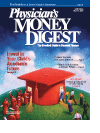Space Shuttle Doctors Remembered
When the space shuttle Columbia tragicallybroke up on reentry on February 1, amongthe 7 astronauts who died were 2 intrepidphysicians who had spent their medical careers in militaryservice while dreaming of going into outer space.In short, our heroes come from all walks of life.
LAUREL SALTON CLARK, MD
One of 2 women on board Columbia, Dr. Clark startedout wanting to be a veterinarian, but wound up atthe University of Wisconsin Medical School, intendingto specialize in pediatrics. After graduating in 1987, shejoined the US Navy as a way to pay her medical schoolbills. It led her to an exciting career that included divingwith the Navy Seals and touring as the medical officer on a Navy submarine.
After a 10-year career in the US Navy, she had beguntraining as a flight surgeon when she applied to NASA'sastronaut program. Passed over on her first try, she wasaccepted after she applied a second time.
Her job on Columbia was medical and biologicalresearch, investigating topics like gene transfer inplants and the loss of calcium in bones while in freefall. Her scientific duties didn't suppress her appreciationfor the splendor of space, however. She sent severale-mail messages to relatives and friends during her16 days in space describing the outer atmosphere's gloriousvistas—fantastic sunsets and moonsets, lightningover the Pacific, and beautiful panoramas from thousandsof miles up. "The stars have a special brightness,"she wrote in one of her e-mails.
The 41-year-old doctor had an affinity for somewhatrisky hobbies. She loved parachuting, scuba diving, andmountain biking, and thrived on challenges. She lovedthe mountains, especially those in Scotland, where herhusband, US Navy Captain Jonathan Clark (also a physician),proposed to her. She was always proud of herScottish heritage and chose a bagpipe version ofAmazing Grace as her wakeup song aboard the shuttle.It had been played at her wedding and was playedagain at her funeral, where the minister at her childhoodUnitarian church in Racine, Wis, focused on herjoy in life, quoting from one of her e-mails. In it shewrote, "I hope you could feel the positive energy thatbeamed to the whole planet as we glided over."
In addition to her husband, Dr. Clark is survived byher 8-year-old son, Iain.
DAVID W. BROWN, MD
According to his friends, Capt. David W. Brown, MD,was always fascinated with outer space, although hispath to the shuttle Columbia took some odd turns. Anavid college gymnast, Dr. Brown joined a circus as a stiltwalker, acrobat, and unicyclist, while earning top marksat the College of William and Mary. After graduatingfrom Eastern Virginia Medical School in 1982, he signedup with the US Navy, serving in a military hospital inAlaska and aboard an aircraft carrier, and was eventuallynamed "Flight Surgeon of the Year" before beingselected for training as a pilot and ultimately graduatingat the top of his class.
Dr. Brown flew a variety of aircrafts, including the high-performanceT-38 Talon, known to military aviators as theWhite Rocket. He joined the US Navy test pilot school in1995 and was chosen for NASA's astronaut program thefollowing year on his third try. It was the culmination of adream for Dr. Brown, who was so hooked on space that hehad a telescope set up in his living room and often flew hissingle-engine private plane from Houston, where he lived,to Galveston to attend astronomy meetings.
In an interview before he took off, the 46-year-olddoctor said: "The great thing about being an astronaut isthat you get to do a little bit of everything." Dr. Brown'srole on the Columbia shuttle reflected that. He was onboard not only to do medical research into areas like thegrowth of prostate cancer cells, but also served as flightengineer during Columbia's ascent into orbit. He was themission's unofficial archivist, toting his video camera withhim to provide a visual record of the 16-day mission.
Dr. Brown's trip to outer space was all he anticipatedit to be. He especially loved looking at earth from theshuttle. In his last e-mail to his parents, he described thespectacular views and the beauty of the planet: "If I'dbeen born in space, I would desire to visit the beautifulearth more than I ever yearned to visit space. It's a wonderfulplanet."
Dr. Brown is survived by his parents, Paul and DorothyBrown, and his brother, Douglas.
